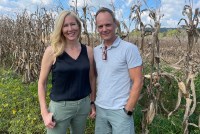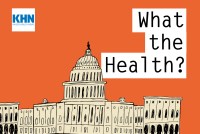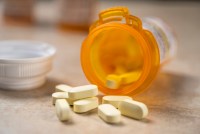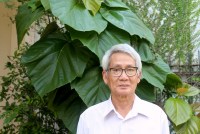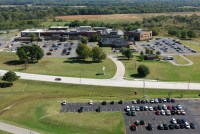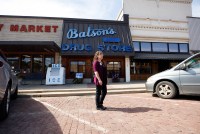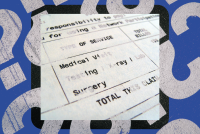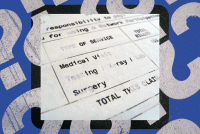Latest Morning Briefing Stories
The ER Charged Him $6,500 for Six Stitches. No Wonder His Critically Ill Wife Avoided the ER.
With few options for health care in their rural community, a Tennessee couple’s experience with one outrageous bill could have led to a deadly decision the next time they needed help.
KHN’s ‘What the Health?’: Boosting Confusion
Federal health officials appear poised to extend a recommendation for covid boosters to all adults, following moves by some governors and mayors to broaden the eligible booster pool as caseloads rise. Meanwhile, the Food and Drug Administration finally has a nominee to head the agency: former FDA chief Robert Califf. And Medicare premiums for consumers will likely rise substantially in 2022, partly due to the approval of a controversial drug to treat Alzheimer’s disease. Tami Luhby of CNN, Sarah Karlin-Smith of the Pink Sheet and Rachel Cohrs of Stat join KHN’s Julie Rovner to discuss these issues and more. Also this week, Rovner interviews Dan Weissmann, host of the “An Arm and a Leg” podcast.
Public Opinion Is Unified on Lowering Drug Prices. Why Are Leaders Settling for Less?
Politicians and many health experts have done their best to see the glass half-full in the plan put forward by congressional Democrats and the president. But it’s “a far cry” from what other nations do to rein in drug prices, and polls show most voters demand more protection.
Stranded by the Pandemic, He Had Only Travel Insurance. It Left Him With a $38,000 Bill.
Although it’s possible to buy travel insurance that provides some health coverage, the devil is in the fine print. Obama-era laws that prevent refusal of payment for preexisting conditions don’t apply to travel insurance.
As Big Pharma and Hospitals Battle Over Drug Discounts, Patients Miss Out on Millions in Benefits
The number of pharmacies dispensing 340B discounted drugs soared to more than 31,000 this year. Drugmakers struck back by halting some discounts. Hospitals say they are losing millions of dollars — and cutting back services to patients — as a result.
Fabricantes de medicamentos se niegan a ofrecer descuentos a miles de farmacias contratadas por los hospitales, diciendo que el programa ha crecido más allá de su uso previsto.
How Rural Communities Are Losing Their Pharmacies
More than 1,000 independent rural pharmacies have closed since 2003, leaving 630 communities with no retail drugstore. As 41 million people stuck in pharmacy deserts make do, the remaining drugstores struggle to survive.
Cómo las comunidades rurales están perdiendo sus farmacias
Las farmacias de las esquinas, que alguna vez estuvieron tanto en las grandes ciudades como en los pueblos rurales, están desapareciendo de muchas áreas del país, dejando a unos 41 millones de estadounidenses en lo que se conoce como “desiertos de farmacias”, sin fácil acceso a las farmacias.
Your Out-of-Pocket Health Care Costs Need Not Be a Mystery
A new California law requires health insurance companies to notify consumers how much remains on their deductibles and how close they are to their annual out-of-pocket spending limits.
Tu gasto de bolsillo en atención médica no debe ser un misterio
Una ley de California firmada por el gobernador Gavin Newsom en octubre puede ayudar a clasificar una maraña de facturas médicas para entender qué cubre el plan de salud y cuándo comenzará la cobertura.


